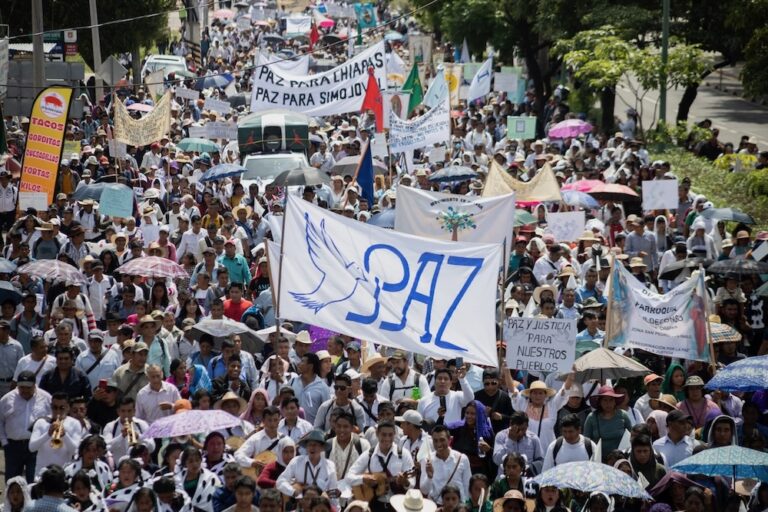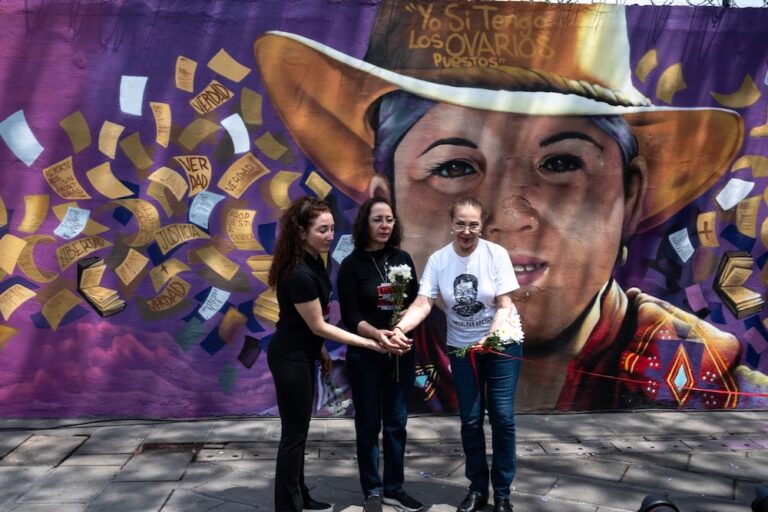(CENCOS/IFEX) – The following is a 2 May 2007 CENCOS press release: On the right to free expression in Mexico: improvements still due The degree to which the right to free expression can be exercised (vs: ability to exercise the right to free expression) is an indicator of the state of democracy in a country, […]
(CENCOS/IFEX) – The following is a 2 May 2007 CENCOS press release:
On the right to free expression in Mexico: improvements still due
The degree to which the right to free expression can be exercised (vs: ability to exercise the right to free expression) is an indicator of the state of democracy in a country, given that this right is fundamental to the exchange of ideas and dialogue required in any society that celebrates pluralism and diversity.
Freedom of expression is a human right with many components, one of which is access to media and the conditions needed to express oneself, whether one is an ordinary citizen or someone whose daily work involves exercising that right, as journalists’ work does.
The statistics in Mexico regarding freedom of expression are alarming. Thirty journalists were killed between December 2000 and December 2007: 28 of these during the six years of Vicente Fox’s presidency, two during the first months of President Felipe Calderón’s administration.
These statistics reveal the fact that freedom of expression is a right under threat, and bring into question the degree to which Mexico’s political system is actually as democratic as claimed.
The murder of journalists represents not only a violation of freedom of expression, it also reflects the presence of conflicting interests among de facto power-holders. De facto power-holders are those whose power is informally derived, though formal power-holders may collude with them; these power-holders are to be found in the media, in criminal organisations, in religious groups, in monopolistic business circles, and in the political parties. They are capable of exerting pressure on other groups and of promoting their own interests.
With this in mind, CENCOS states:
That the President, having begun his six-year term in power, must clearly state his position on these matters, since he has not yet done so despite the murders of journalists in 2007. In this regard, he should follow the recommendations of the Inter-American Commission on Human Rights.
That the legislative powers must support and validate the Special Commissions for the Investigation of Aggression against Journalists and Media (Comisiones Especiales de Seguimiento a las Agresiones a Periodistas y Medios de Comunicación) by publicly reporting on the progress of investigations by the Office of the Special Prosecutor for Crimes Against Journalists (Fiscalía Especial para la Atención de Delitos Contra Periodistas), by generating initiatives to facilitate these investigations, and by making public statements on the issue.
That the courts must generate the conditions necessary for the Special Prosecutor’s Office To Investigate Crimes against Journalists to attain a higher public profile, report on the progress of its investigations, and penalise those responsible for crimes against journalists.
In recent years, the climate of violence in Mexico has become more intense, while corruption and organised crime’s struggle for power have become all the more visible. We cannot continue to allow repression, symbolic or physical, of the right to freedom of expression, for to do so is to announce to the violators of this right that they may commit these crimes with impunity.


